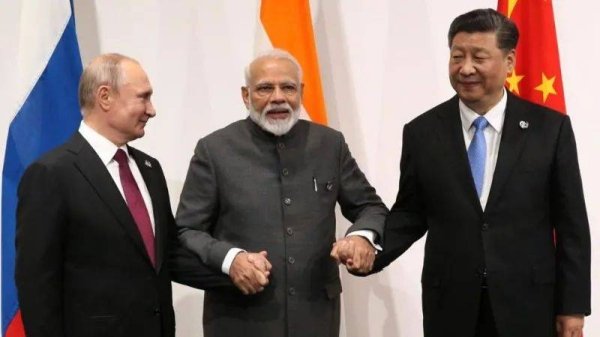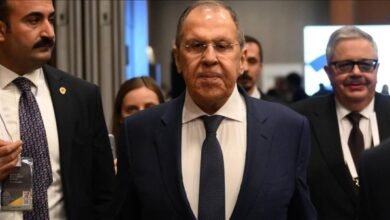India’s balancing act with the West as Brics flexes new muscles

SMA NEWS – KAZAN
For years, Western critics have dismissed Brics as a relatively inconsequential entity.
But this past week, at its annual summit in Russia, the group triumphantly showcased just how far it has come.
Top leaders from 36 countries, as well as the UN Secretary General, attended the three-day event, and Brics formally welcomed four new members — Egypt, Ethiopia, Iran, and the United Arab Emirates. More membership expansions could soon follow. Brics had previously added only one new member — South Africa in 2010 — since its inception (as the Bric states) in 2006.
There’s a growing buzz around Brics, which has long projected itself as an alternative to Western-led models of global governance. Today, it’s becoming more prominent and influential as it capitalizes on growing dissatisfaction with Western policies and financial structures.
Ironically, India — perhaps the most Western-oriented Brics member — is one of the biggest beneficiaries of the group’s evolution and expansion.
India enjoys deep ties with most new Brics members. Egypt is a growing trade and security partner in the Middle East. The UAE (along with Saudi Arabia, which has been offered Brics membership but hasn’t yet formally joined) is one of India’s most important partners overall. India’s relationship with Ethiopia is one of its longest and closest in Africa.
Brics’ original members continue to offer important benefits for India too.
Delhi can leverage Brics to signal its continued commitment to close friend Russia, despite Western efforts to isolate it. And working with rival China in Brics helps India in its slow, cautious effort to ease tensions with Beijing, especially on the heels of a border patrolling deal announced by Delhi on the eve of the summit. That announcement likely gave Prime Minister Narendra Modi the necessary diplomatic and political space to meet with Chinese President Xi Jinping on the summit’s sidelines.
Additionally, Brics enables India to advance its core foreign policy principle of strategic autonomy, whereby it aims to balance relations with a wide spectrum of geopolitical players, without formally allying with any of them.
Delhi has important partnerships, both bilateral and multilateral, inside and outside the West. In that sense, its presence in an increasingly robust Brics and relations with its members can be balanced with its participation in a revitalised Indo-Pacific Quad and its strong ties with the US and other Western powers.
More broadly, Brics’ priorities are India’s priorities.
The joint statement issued after the recent summit trumpets the same principles and goals that Delhi articulates in its own public messaging and policy documents: engaging with the Global South (a critical outreach target for Delhi), promoting multilateralism and multipolarity, advocating for UN reform (Delhi badly wants a permanent seat on the UN Security Council), and criticizing the Western sanctions regime (which impacts Delhi’s trade with Russia and infrastructure projects with Iran).
And yet, all this may appear to pose a problem for India.





